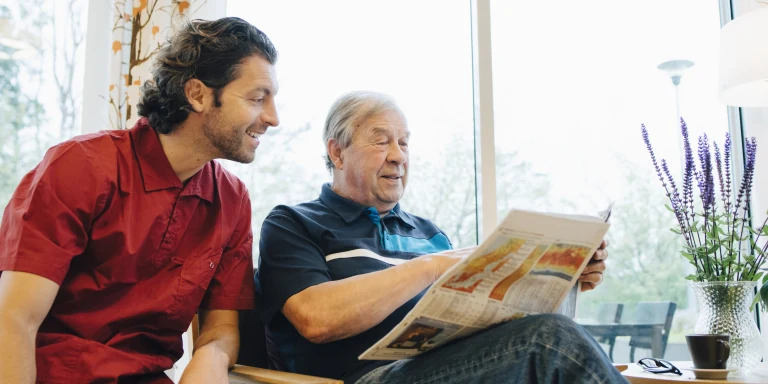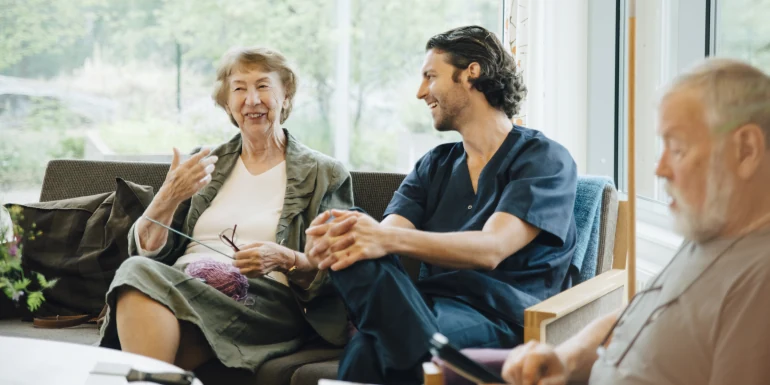
Elder care at home for as long as possible
Health problems when you are older do not automatically mean giving up your independence. Family members can take on basic care tasks and various organisations also offer domestic care services. Moving to a smaller apartment or retirement accommodation could be a suitable solution. Cost is another factor to consider: primarily the cost of care and the specific needs of the individual who requires care.
Independent living to a ripe old age: who wouldn't want to? For many people, this wish can be granted thanks to domestic care from Spitex, Pro Senectute and other similar organisations, but also with support from family and friends. New aids such as easy-to-use cookers and automatic alarm systems also help older people to go on living in familiar surroundings despite limiting factors.
Is your mum's apartment becoming too big for her? Is she finding it difficult to climb the stairs, and to do the gardening? She might want to move into an easy-maintenance apartment where she can live independently and only call on support and care services when necessary. But these days a large number of other accommodation models are available for older people. They include sharing a home with similarly aged, like-minded people, retirement apartments located close to an old people's home or nursing home as well as assisted living apartments that combine private accommodation with support and care services. Have a chat with your mum and think about what type of accommodation would best suit her needs and wishes.
When family members are the carers
Should your mum wish to stay within her own four walls, it's particularly important to have a good network of relationships. Talk to her about what she wants and can do for herself, and about what sort of help she would be glad to get from you. Have a chat with her about the options for outside assistance. For example, arrange a home help and ask neighbours whether they could help out with smaller chores. Enquire about "seniors for seniors" clubs in the area and find out what organisations like Spitex, Pro Senectute and similar institutions can offer.
Give a close relative or friend power of attorney to deal with your health insurance provider.
Exercise, nutrition and contact
Your mum will most likely want to stay in her own home for as long as possible. A balanced diet is vital in terms of staying fit and healthy. But if she's no longer able to cook for herself on a daily basis, she can request a meals service. There are various institutions that provide such a service. Church groups provide lunches at which it will be easy for her to get to know people. Going to the restaurant in a retirement home or nursing home can be a nice change. Encourage your mum to get some exercise. She might want to try a rhythmics course, for example, or a yoga course for the elderly.
What costs are involved in domestic care?
The cost of care at home varies. It depends on the one hand on the care services that are required, but also on the person's individual wishes in terms of convenience and service. Remember that the person in need of care will have to pay all of the costs of services such as support, meal services and a home help themselves. Basic insurance will only cover contributions to certain medically prescribed care services. The statutorily prescribed benefit co-payment is a maximum of CHF 15.95.
Who pays the care costs?
Funding long-term care comes from three main sources: health insurance contributions, social-security contributions and – where permitted by the financial status of the person in need of care – individual contributions.
Subject to certain conditions, your parents can apply for helplessness allowances, additional AHV benefits and, if necessary, social assistance.
Further information


Newsletter
Find out more about current health issues every month and get all the information you need about our attractive offers from all Helsana Group companies * delivered by e-mail to read whenever it suits you. Our newsletter is free of charge and you can sign up here:
We did not receive your information. Please try again later.
* The Helsana Group comprises Helsana Insurance Company Ltd, Helsana Supplementary Insurances Ltd and Helsana Accidents Ltd.